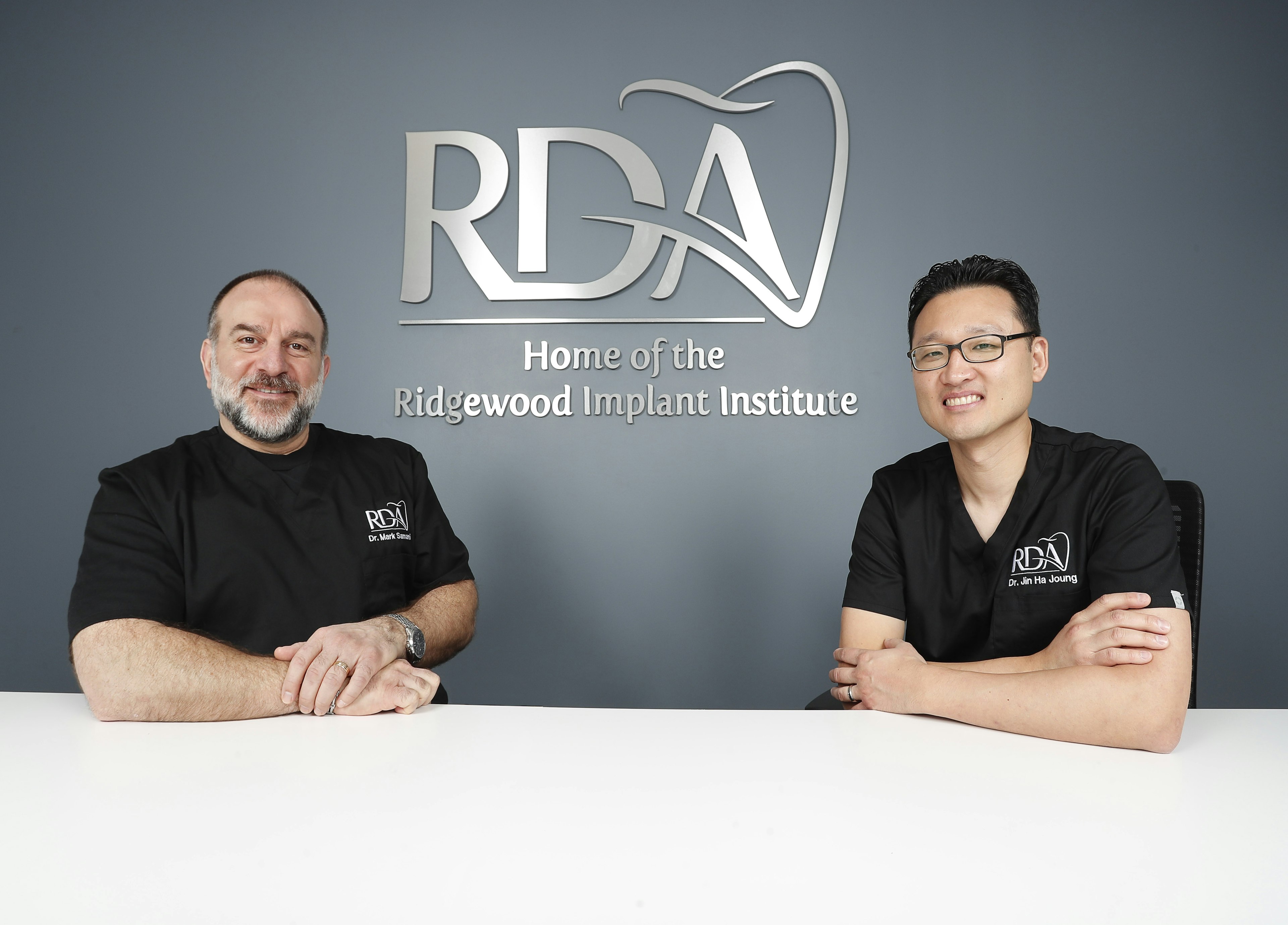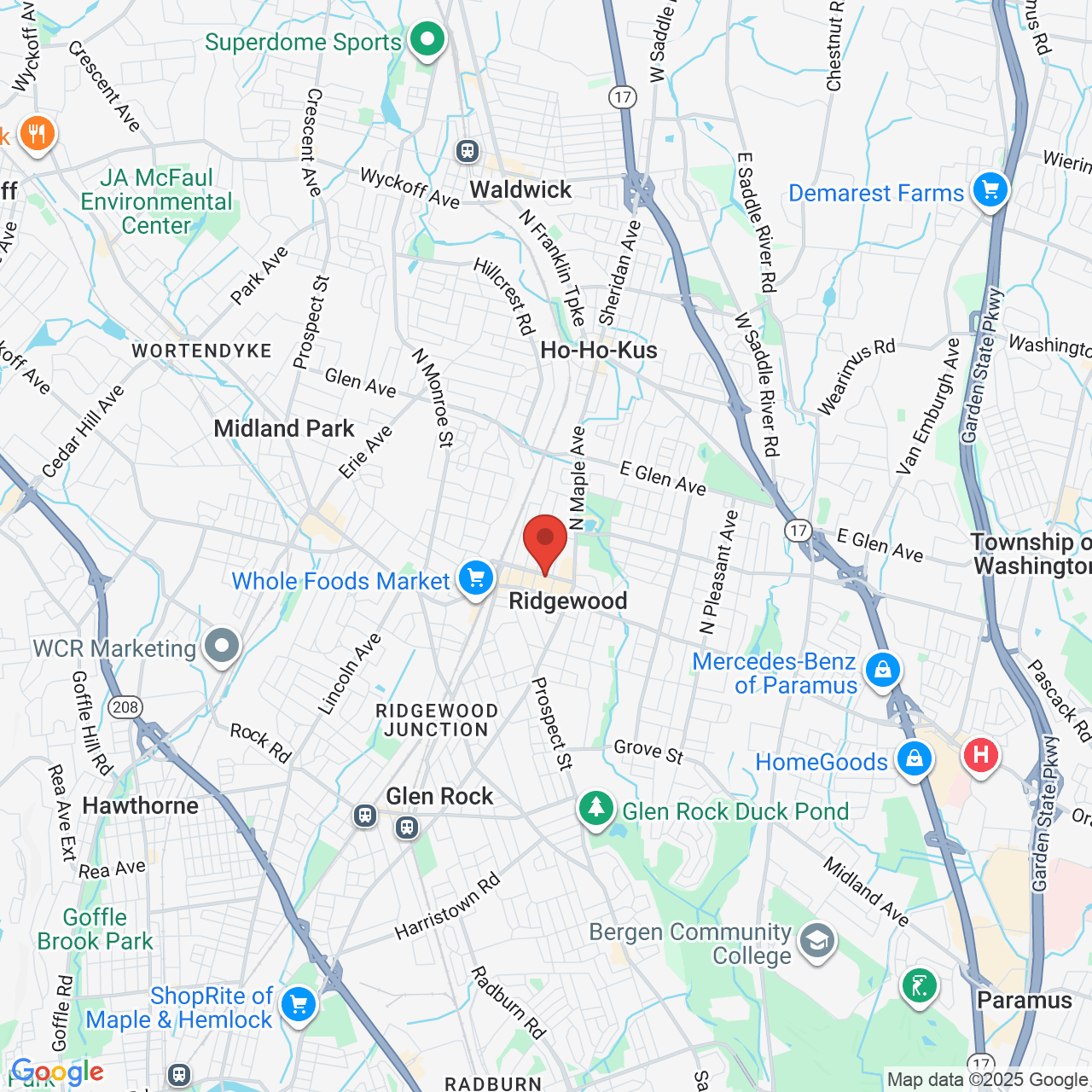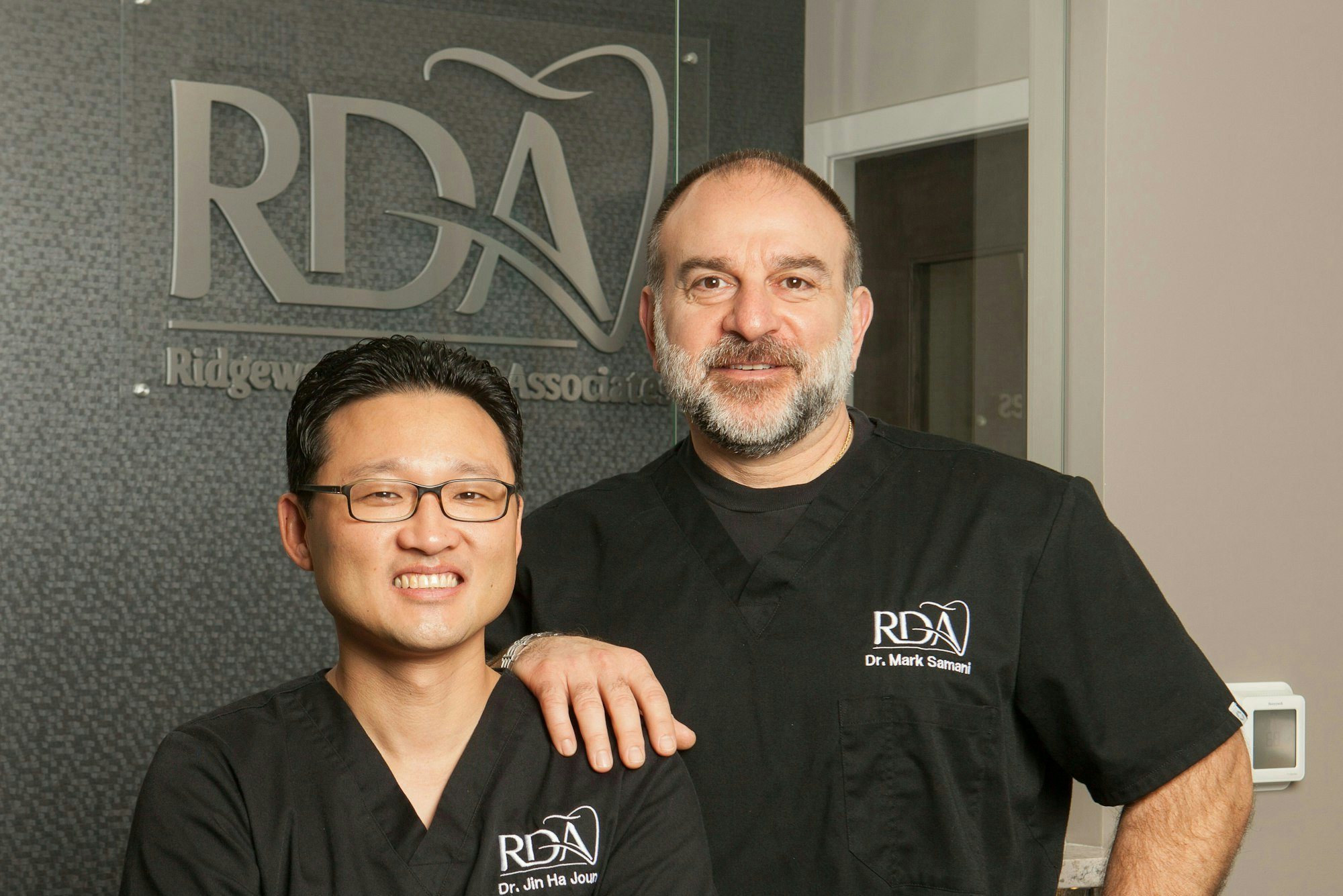
TMJ Disorders
Does your jaw lock or pop when you open your mouth wide? Do you have jaw pain? You may be suffering from a TMJ disorder.
Ridgewood Dental Associates has helped people throughout Bergen County, NJ, experience relief from jaw pain and other symptoms.
Learn how Drs. Jin Ha Joung and Mark Samani can restore proper TMJ function at our Ridgewood, NJ, office...
What Is a TMJ Disorder?
The TMJ (the temporomandibular joint) is the hinge joint that connects the lower jawbone (mandible) to the temporal bone of the skull. TMJ is one of the most complicated joints in the entire body given the range of motion required to eat, speak, and make facial expressions.
A temporomandibular disorder, or TMD, occurs when there are problems with the normal function of the jaw joint. A TMD could involve issues affecting the bone, cartilage, muscles, and nerves of the face.
People experience different degrees of TMD and its various symptoms...
TMD Symptoms
/
- Pain or tenderness in the face, jaw, neck, or shoulders
- Headaches, including migraines
- Soreness around the eyes and temples
- Ear pain while chewing, speaking, or yawning
- Clicking, popping, or grating sounds in the jaw
- Stuck or locked jaw joints (lockjaw)
- Swelling on either side of the face
- Difficulty biting down and chewing
Just How Common Is TMJ Disorder?
Do You Suffer from TMD Symptoms? Contact Our Practice Today
Have you noticed any of the symptoms listed above? Do you grind your teeth, or have you experienced a jaw injury in the past? You may have a TMD and not even realize it. Ridgewood Dental Associates can help.
Our dentists have more than 40 years of combined experience, with a focus on innovative dental care. We use state-of-the-art 3-D x-rays and diagnostic tools to examine the TMJs, the jaw muscles, and other affected tissues. Following a consultation, we can develop a custom treatment plan that relieves symptoms and restores your health and wellness.
To learn more about treatments for TMJ disorders, contact our dentists online. You can also schedule an appointment by phone.
Call Our Office
(201) 652-2474

"Friendly, welcoming, and very professional!"
I highly recommend going to Ridgewood Dental! They are so friendly, welcoming, and very professional! They are very thorough in making sure your teeth are well taken care of.
View On Google
The doctor and the staff were very nice friendly and professional.
Well done job!
Treating TMJ Disorders Our Philosophy in Action

Ridgewood Dental Associates was one of the first practices in Bergen County, NJ, to employ TMJ specialists. Our focus on rehabilitating our patients' jaw function and oral health is nearly unrivaled. The same can be said of our ability and track record.
Personal Attention
As with all of our services, TMD treatment begins with an extensive one-on-one consultation with your doctor. This appointment gives you a chance to become better informed about TMD, ask questions, and address concerns. Your doctor will educate you about the treatment options that will work best for you and prepare you to undergo the recommended procedure or procedures.
A Focus on Long-Term Health
The team at our Ridgewood, NJ, practice provides excellent dental care for life. Even after your TMD treatment, you will continue to visit us for checkups and routine cleanings to ensure the health of your temporomandibular joints, teeth, and gums.
We want the relief you experience to last for years to come.
There are many ways to relieve and reduce TMD symptoms...
Further Care for Teeth Grinding
/
Relieving strain on the temporomandibular joints is just one facet of treatment. If you grind your teeth, our dentists can recommend additional procedures and at-home practices that can remedy this problem. This can include orthodontic care and relaxation techniques. It's all part of our holistic approach to TMJ treatment, with an emphasis on treating the root cause or causes of your problem.
"Treats you like family."
Always feel welcomed, never rushed. Questions are thoroughly answered. Appointments are on time. Can't ask for much more than that.
View On GoogleClean, safe practices. The office treats you like family. They care for you as a person and as a patient. I can’t say enough positive things about this practice. After having many negative experiences and truly fearing dentists, RDA turned that around for me.
View On GoogleOther Options for TMJ Treatment
Because the severity of TMD varies from person to person, the treatments for the condition vary based on the patient's needs. Our dentists can discuss more advanced TMJ treatments as part of the consultation process.
Treating Mild TMJ Dysfunction
For mild-to-moderate TMJ dysfunction, conservative treatments include:
- Application of hot and/or cold packs
- Eating softer foods
- Use of pain relievers
- Use of anti-inflammatory medications
- Stress management
- No chewing gum
Treating Severe TMJ Dysfunction
For severe cases of TMD, some of the more intensive treatments include:
- Trigger-point injections
- Arthrocentesis
- Arthroscopy
- TMJ surgery













